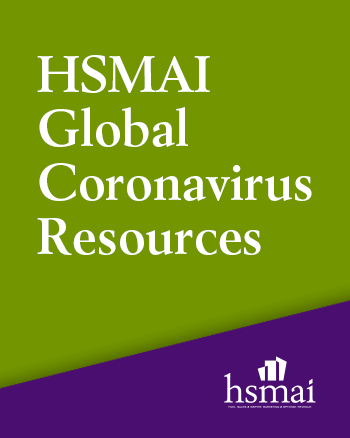By Hunter Webster, CDHM, Senior Vice President of Revenue Strategy, Interstate Hotels & Resorts, and member of HSMAI’s Revenue Optimization Advisory Board
 HSMAI’s Revenue Optimization Advisory Board (ROAB) met on a call to discuss the implications of the coronavirus on the industry from a revenue perspective. While everything we discussed was accurate at the time — March 5 — the situation has evolved rapidly since then. At the time of the call, Italy had yet to mass-quarantine the country and the United States only had a few hundred cases, compared to more than 4,000 today.
HSMAI’s Revenue Optimization Advisory Board (ROAB) met on a call to discuss the implications of the coronavirus on the industry from a revenue perspective. While everything we discussed was accurate at the time — March 5 — the situation has evolved rapidly since then. At the time of the call, Italy had yet to mass-quarantine the country and the United States only had a few hundred cases, compared to more than 4,000 today.
While some of the insights and perspectives may already be irrelevant, it is interesting to see how our industry was thinking about things just a short time ago. If nothing else, it reminds us that how we’re responding to the coronavirus now could feel similarly outdated in another two weeks.
Here are three takeaways from the call:
1. The effects on the industry were not fully realized at that point. While some ROAB members on the call who are based in Europe had already been slammed by the virus, members in the United States were still looking at this as a short-term (60-day or less) problem. Europe had banned gatherings of 1,000 people or more and several countries were prohibiting non-essential business travel. In Asia, one ROAB member had been dealing with the virus for a month already, and their hotel was seeing declines for the rest of 2020. “If this current trend continues in the States a month from now, or even a week,” the member said, “you guys could see the same effect as we are in Asia so far.”
And we have. Today, in the United States, the White House and the Centers for Disease Control and Prevention have recommended no gatherings of more than 10 people, and many states have forbidden gatherings of more than 25, 50, or 100 people. The U.S. Travel Association estimates that the economy will lose 4.6 million travel-related jobs this year, while the American Hotel & Lodging Association projects that 3.9 million hotel job will be eliminated in the next few weeks.
2. Once upon a time, force majeure wasn’t relevant. For a group to get to force majeure, depending on the clause, it typically has to be impossible or close to it for an event to be held and for hotels to forfeit their cancellation fees. At this point in time, many of the ROAB members on the call said they would be enforcing their contracts fully and didn’t expect force majeure to apply in most cases. “We’re encouraging our hotels to stick to the contract terms and go after full cancellation,” one member said.
But not every ROAB member planned to strictly enforce cancellation fees. “The starting point is what’s in the contract,” a member said, “but we also want to be careful not to make a short-term decision at the expense of a valuable long-term relationship.”
However, now that governments both domestically and around the globe are banning large gatherings, quarantining entire cities and countries, and banning travel coming in, force majeure likely will apply in many if not all cases, changing the situation for hotels and customers.
3. There is uncertainty going forward. This is one thing that hasn’t changed. “We don’t know what tomorrow looks like, in terms of when the bleeding is going to stop,” one ROAB member said.
For additional information, insights, and tools, visit HSMAI’s Global Coronavirus Resources page.
